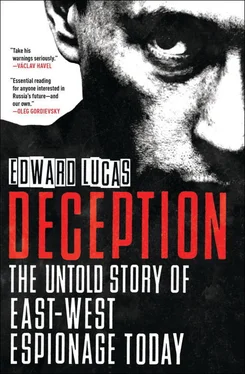A deeper reason for Russian behaviour is a paranoid mind-set conditioned partly by the Cold War, partly by the alliance’s expansion, and partly by the NATO-led bombing of Serbia in 1999. [20] t Many worried that a supposedly defensive alliance was waging an aggressive war against a historic Russian ally. Yet NATO got involved only reluctantly and belatedly, after the multiple massacres in the preceding Bosnian war, and when Russian foot-dragging had stymied efforts to stop a Serbian attack on Kosovo.
With the Soviet Union out of the way, Russians believe, America and its allies turned a neutral front yard into a cordon sanitaire , deliberately designed to humiliate and constrain the former superpower, and breaking a promise made to the Soviet Union in exchange for German reunification. 15What if NATO decides next to help one of Russia’s near neighbours, say Georgia, or Ukraine, or Moldova, in some military flare-up? When dealing with a powerful and unpredictable military alliance on your borders it is better to have too many sources than too few. Nobody is going to complain about having too much information about NATO’s inner workings. The more the diligent spies report that NATO is ineffective and distracted, the more the instructions come back to dig deeper and find the real story.
Other international organisations are at even greater risk. The mental barriers to giving away secrets are lower (betraying your country or its military alliances is one thing, betraying an anonymous bureaucracy is another). Whereas NATO at least tries to keep spies at bay, the headquarters of the European Commission and European Council in Brussels are a security nightmare: a warren of badly policed offices and unvetted staff, where outsiders can walk in and out almost at will on the flimsiest of pretexts. The European Parliament, newly important since the Lisbon Treaty carve-up gave it and the EU’s big countries the main role in the union’s decision-making, is a particularly vulnerable target. Its members (and office staff, on their behalf) can demand almost any document they like from the European Commission. Staffers are lightly vetted (or not at all) and can ask for a briefing or an informal chat with any official.
The EU, it should be noted, is not in the position to treat Russia the same way. For a start, it has no intelligence-gathering service of its own. Weak leadership, squabbles and bureaucracy plague its misnamed ‘External Action Service’, which is supposed to spearhead a more decisive and better-informed EU diplomacy. An intelligence agency requires much greater grip and focus than a diplomatic service. If the EU cannot yet run a foreign ministry and embassies properly, it has no chance of developing a spy agency capable of dealing with a tough target such as Russia. The only advantage of this is that a bad intelligence agency is more damaging than none at all. If you don’t spy, you can’t bungle; you can’t be fooled by bad sources or get good ones into trouble. The disadvantage is that politicians may lack full knowledge of the people and thinking that they are dealing with. The EU is also unable to get proper intelligence from its member states. For the handful of member countries (chiefly Britain and France) that do have real intelligence services, the job is mostly outwitting the EU on matters of national interest, not helping the Eurocrats to raise their game. Even when European and national interests do overlap, the EU is seen as too leaky to be trusted with more than the stalest crumbs of intelligence.
As with all intelligence agencies, it is one thing to gain a flow of information, and another to use it correctly. American decision-makers are overwhelmed by a ‘fire-hose’ of classified, secret, top-secret and urgent information produced by that country’s sprawling intelligence ‘community’. 16Much of it is dross, either recycled or poorly sourced. Much less is known about Russia’s use of intelligence, although it is clear that Mr Putin takes a close personal interest in the output of his country’s agencies – people who know his daily routine say he habitually spends a couple of hours a day reading its reports and cables, while shunning more conventional (and perhaps more useful) sources of information.
For whatever reason, however, Russia does seem to have the knack of searching through floods of data to find the most usable bits. EU officials who deal with Russia, for example, have told me that they frequently have the impression that the other side already knows every part of their negotiating position. It is easy to scoff at this: why should anyone care if the Russians bamboozle the Eurocrats? The answer is simple. If Russia understands which countries are the die-hard supporters of a particular EU policy that it does or doesn’t like, which are the wobblers, and what is the negotiating position, it knows where to apply diplomatic pressure (or when not to waste time and effort fighting a lost cause).
The EU talks to Russia about matters of vital interest to every member-state’s citizens, but a prime example is energy. Here the picture has shifted sharply over the past decade. Ten years ago, Russia was seen as a bright prospect for Europe’s future oil and gas supplies, and a source of nuclear expertise, fuel and technology. Since then corruption and incompetence at home, and bullying behaviour abroad have eroded Russia’s clout, to the point that even Germany is now sceptical about its reliability. In the past, Germany was heavily dependent on Russian gas. Its biggest energy companies were closely tied to Gazprom, and the former German Chancellor, Gerhard Schröder, took on the chairmanship of a controversial Russian–German gas pipeline on the Baltic seabed soon after he left office in 2005. In his time Germany resisted any attempt to talk toughly to Moscow on energy and other issues: many outsiders saw that as sinister. They feared that the gas supplies had anaesthetised the country’s prudence and scepticism when it came to policy towards Russia. 17
That has changed. Russia’s squabbles with transit countries such as Ukraine have interrupted gas supplies to Europe and rattled German confidence. Angela Merkel, Mr Schröder’s successor, is instinctively more hawkish about Russia. Corruption and incompetence in Gazprom and elsewhere have raised fears about Russia’s ability to meet its long-term supply commitments. New gas supplies are available from elsewhere – chiefly Liquefied Natural Gas (LNG), which can be delivered by sea from distant suppliers. Only five years ago this was scarce and expensive. But technological change has made tankers and terminals cheaper, while new extraction techniques mean that more gas is on the market. The days when Russia’s east-west pipeline monopoly created a lock on European energy supplies are over.
But Russia is now playing a hard defensive game. It no longer controls the bottleneck in supplies. Instead it wants long-term contracts, stakes in downstream distribution systems and market information. In Britain, those dealing with Gazprom’s local subsidiary say that its behaviour is less that of a new entrant into the market, and more of an intelligence operation. The head of counter-intelligence for Germany’s BfV security service, Burkhard Even, highlighted the role of Russian spies in
supporting Russian companies… to gain a footing in the German energy sector. The interest is above all in alternative and regenerative energy, possibilities to increase energy efficiency, European energy interests and diversification strategies… 18
Russia is in most respects a backward country – a source of humiliation to those who remember that the Soviet Union was the country that put the first satellite, living creature and human being into space. Closing that gap through the normal process of industrial development seems all but impossible. Despite remaining pockets of excellence in the education system, ambitious Russians head abroad, rather than building their businesses at home. 19Though Mr Putin is personally determined that Russia become a world leader in nano-technology, building such hi-tech industry from scratch is hard: Russia does have plenty of brainpower, but it is starting ten years later than competitors in Germany, America and Britain. The only way Russia can hope to close the gap is by stealing secrets, either to take advantage of them in its own industry, or to trade elsewhere (principally to China). One way of doing that is snooping on other countries’ communications.
Читать дальше












